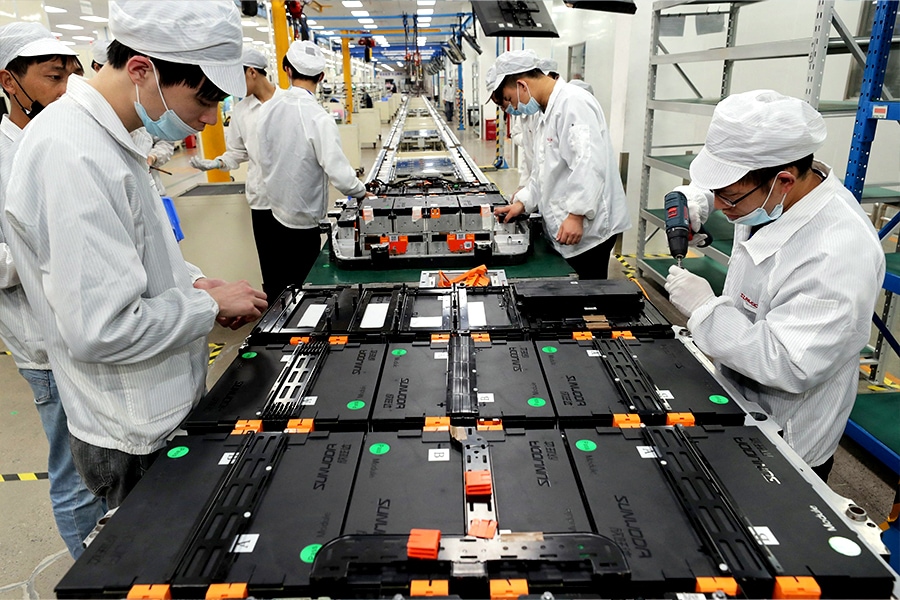
China's lithium boom harming fragile Tibetan plateau: report
The "white gold rush" has led to Chinese miners polluting the local environment with "quick, cheap and dirty" extraction and processing techniques, according to the report by Turquoise Roof, a network of Tibetan researchers
 Workers at a factory for Xinwangda Electric Vehicle Battery Co. Ltd, which makes lithium batteries for electric cars and other uses, in Nanjing in China's eastern Jiangsu province
Image: STR / AFP
Workers at a factory for Xinwangda Electric Vehicle Battery Co. Ltd, which makes lithium batteries for electric cars and other uses, in Nanjing in China's eastern Jiangsu province
Image: STR / AFP
China's booming electric vehicle industry is fuelling a lithium rush in the Tibetan plateau that risks damaging the troubled region's fragile ecology and deepening rights violations, research published Wednesday said.
China is the world's biggest EV market but largely relies on other countries to supply the lithium used in the batteries that power low-carbon vehicles.
That is set to change as Beijing begins to exploit vast deposits on the Tibetan plateau -- around 85 percent of the country's total lithium reserves.
But this "white gold rush" has led to Chinese miners polluting the local environment with "quick, cheap and dirty" extraction and processing techniques, according to the report by Turquoise Roof, a network of Tibetan researchers.
The group used satellite data and public resources to chart the impact of lithium mining in culturally Tibetan areas and its links to carmakers, including Elon Musk's Tesla and its Chinese competitor BYD.







